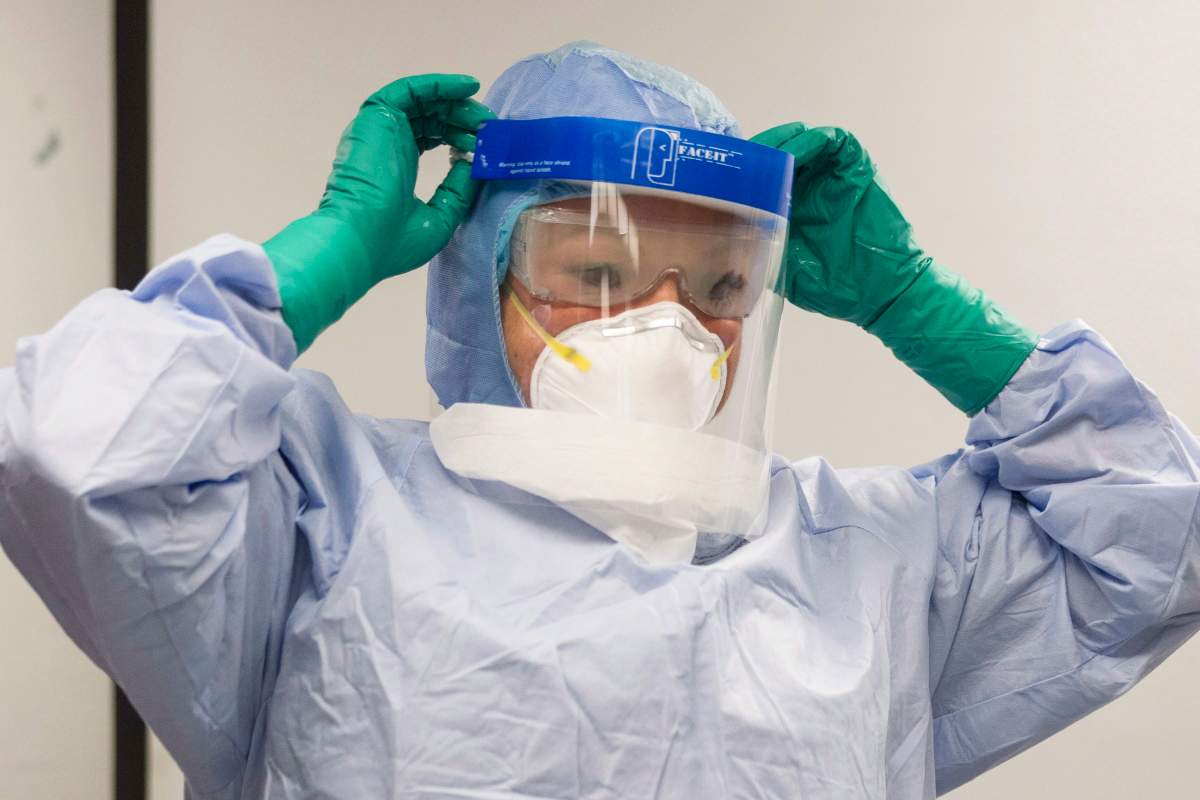The Public Health Agency of Canada says it will consult with the Canadian Federation of Nurses Unions on its next set of guidelines for protecting health-care workers against the novel coronavirus, but warned stricter protocols carry their own set of risks.

The interim guidelines the federal public health agency released this month lay out the precautions health-care workers should take when assessing and treating a patient possibly infected with the new coronavirus, or COVID-19, including what protective equipment should be used.
The nurses’ unions warned the national guidelines to protect nurses, doctors and other hospital staff from exposure to the highly contagious virus are less stringent than those in other jurisdictions, including provincial rules in Ontario.
The U.S. Centers for Disease Control, for example, calls for health-care workers to wear respirators when interacting with potential coronavirus patients to protect against possible airborne transmissions, but Canada’s national guidelines only call for looser surgical masks in most scenarios.
Dr. Howard Njoo, the deputy chief public health officer, says the agency will consider those concerns, but notes that being overly cautious could mean burning through limited supplies unnecessarily.

Get weekly health news
“We understand the nurses’ perspective,” said Njoo, who sits on the technical advisory committee that discussed the guidelines. “There’s more to it than just what they’re saying.”

Some infectious-disease specialists worry about the “inappropriate use of personal protective equipment” for example, he said, which could needlessly use up the supply of respirators since the evidence so far indicates the virus is transmitted by larger droplets from coughs and sneezes, not by floating through the air.
Countries around the world have reported shortages of medical masks for personal and medical use alike as the virus spreads and demand surges.
The risk of contracting the virus in Canada is considered low, and the health system has so far been able to contain the cases imported from other countries.
So far, 14 cases have been confirmed in Canada, with a 15th presumptive case discovered in Quebec.
Canada’s chief public-health officer Dr. Theresa Tam said provinces are working together to take stock of the necessary medical supplies in the event of an outbreak in Canada.
Njoo and Health Minister Patty Hajdu met representatives of the nurses union federation Tuesday to discuss their concerns, and the public-health agency agreed to set up another meeting next week to take their feedback.
Federation of Nurses Unions president Linda Silas said it’s important to get those guidelines right, because even though provinces can set out their own guidelines many will simply defer to the national recommendations, she said.
“We’re asking health-care employers to ignore the interim guidelines and follow the Ontario guidelines, which are much safer,” said Silas.







Comments
Want to discuss? Please read our Commenting Policy first.